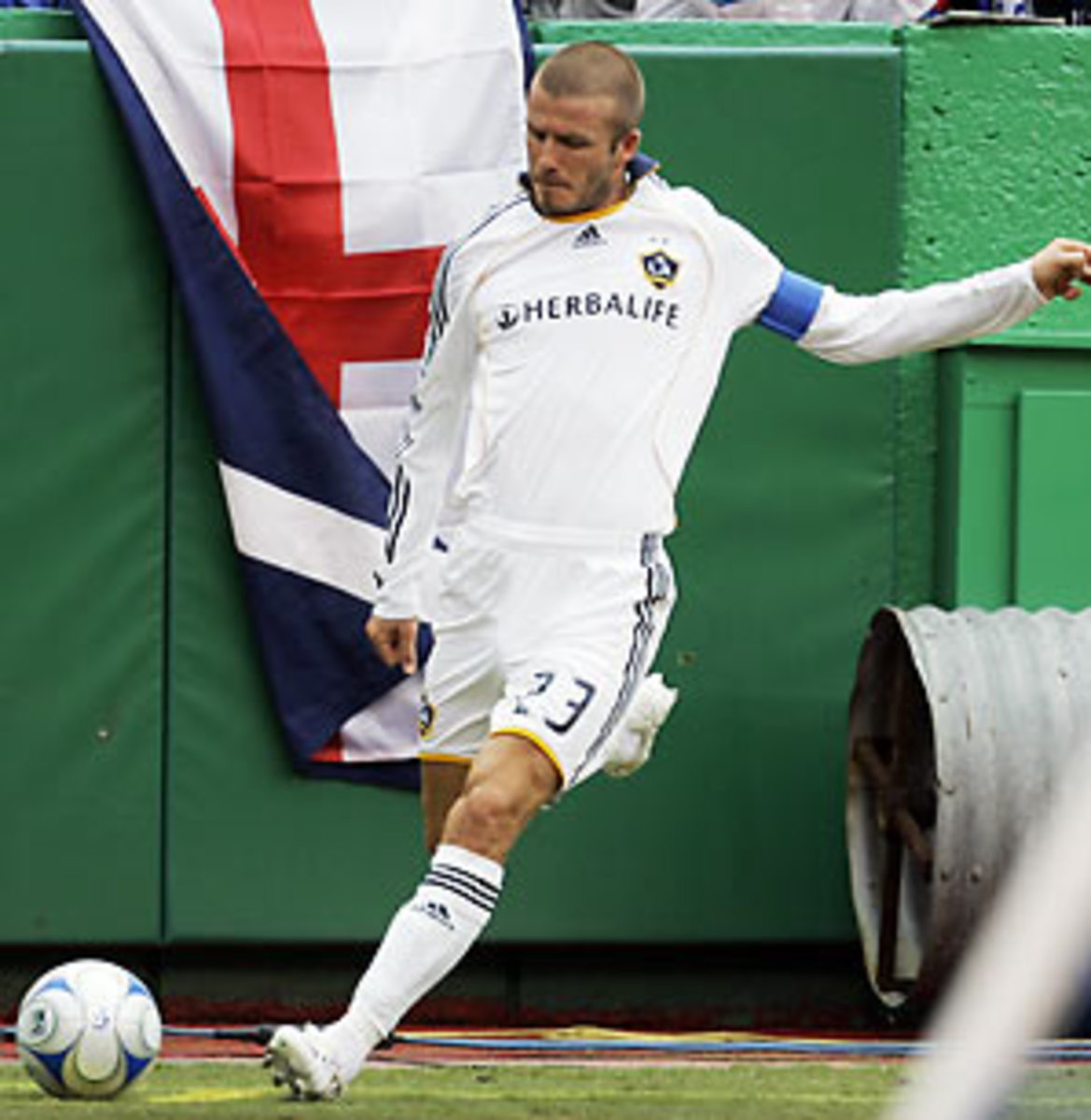
MLS now a value-added proposition
Yours is the booming voice that commands the attention of CEOs and Fed chairs, and your coverage provides the imprimatur of legitimacy to any endeavor you deem worthy of your gold-plated pages (or Web pages, at least).
Last week, Forbes, the soccer community knelt before you: You gave MLS some ink. Break out the Moet, people.
I can only imagine the thrill this sent through the halls of MLS headquarters in New York. This, after all, is a firm sign of MLS' arrival on the main stage, a watershed moment on par with a rock band getting to Madison Square Garden.
And it wasn't just a passing mention about the Herbalife jersey sponsorship. This was the full Forbes treatment, an in-depth analysis of the league's finances and the valuations of the MLS franchises (click here to see it).
So what did we learn? Nothing we didn't already guess.
Los Angeles is worth the most: a cool $100 million. Kansas City is worth the least ($22 million). Only three teams turned a profit in 2007 (L.A., Toronto FC and, surprisingly, FC Dallas, which I swear averages about 17 fans for its games), while both New York and Columbus were $4.5 million in the red. And odds are that the price tag of an expansion team will soon be $50 million.
What does all this have to do with the price of tea in China, as certain of my family members like to say? The numbers put one thing front and center: MLS is no longer North America's bargain-basement league.
Some people might think this is a shame, like it's a bummer that MLS is almost all growns up, as Trent Walker famously said in Swingers. For years, people have argued MLS is a good investment because it's not as expensive as the NFL, MLB or NBA. Look, they would say, you don't have to have Abu Dhabi money to buy into MLS. For the price of your Learjet, the Wizards could be yours. Whee!
But a bargain-basement perception has actually kept MLS from going to the next level because many people -- namely, sponsors and owners, both current and potential -- don't want to shop in the bargain basement. Mostly, because they don't have to. And when they looked at MLS, they often thought that the "M" stood for Minor, not Major.
Remember when the Tampa Bay Mutiny (my old team) and the Miami Fusion folded? Remember when the Chicago Fire played at a rickety high school stadium? And ESPN games were preempted for bowling or something?
What was major about any of that? Nothing. And who wants to be associated with something minor that has the deluded self-importance to call itself major? No one.
But $100 million is not minor in any way. The Galaxy's valuation has enough zeroes to capture the interest of potential owners and sponsors who want to be involved in something big, something that could earn them some real money and real envy from their rich friends.
And that phenomenon is continuing, as evidenced by the news last week when an executive with the New York Mets told Bloomberg that the MLB team might bring a second MLS team to the Big Apple. (Actually, considering the Red Bulls play in New Jersey, I guess it would be the first team. I [heart] N.Y.!) The Mets are set to move into a new stadium adjacent to existing Shea Stadium next year, and they're considering building a soccer-specific stadium next door.
Nothing's agreed to or signed, but it's possible they could join the league in the planned 2011 expansion. What a fantastic happening that would be! Two teams in New York, battling for the Verrazano Cup -- or whatever name some marketing guru comes up with for the rivalry -- fighting for turf and attention in the most important media market in the world. This would be a SuperDuperClasico.
But it wouldn't even be a topic of conversation for Mets owner Fred Wilpon if he didn't know that an MLS team could be worth $100 million. Whether the Mets will end up bringing a team to New York City proper or not remains to be seen.
Ultimately, it doesn't matter. What matters is that captains of industry and titans of business now see MLS as something worth their time (and, remember, time is money). The more of them that get involved, the more money the teams will have to spend, which means better players, better stadiums, better soccer. And better soccer is more than worth the price of tea in China.




